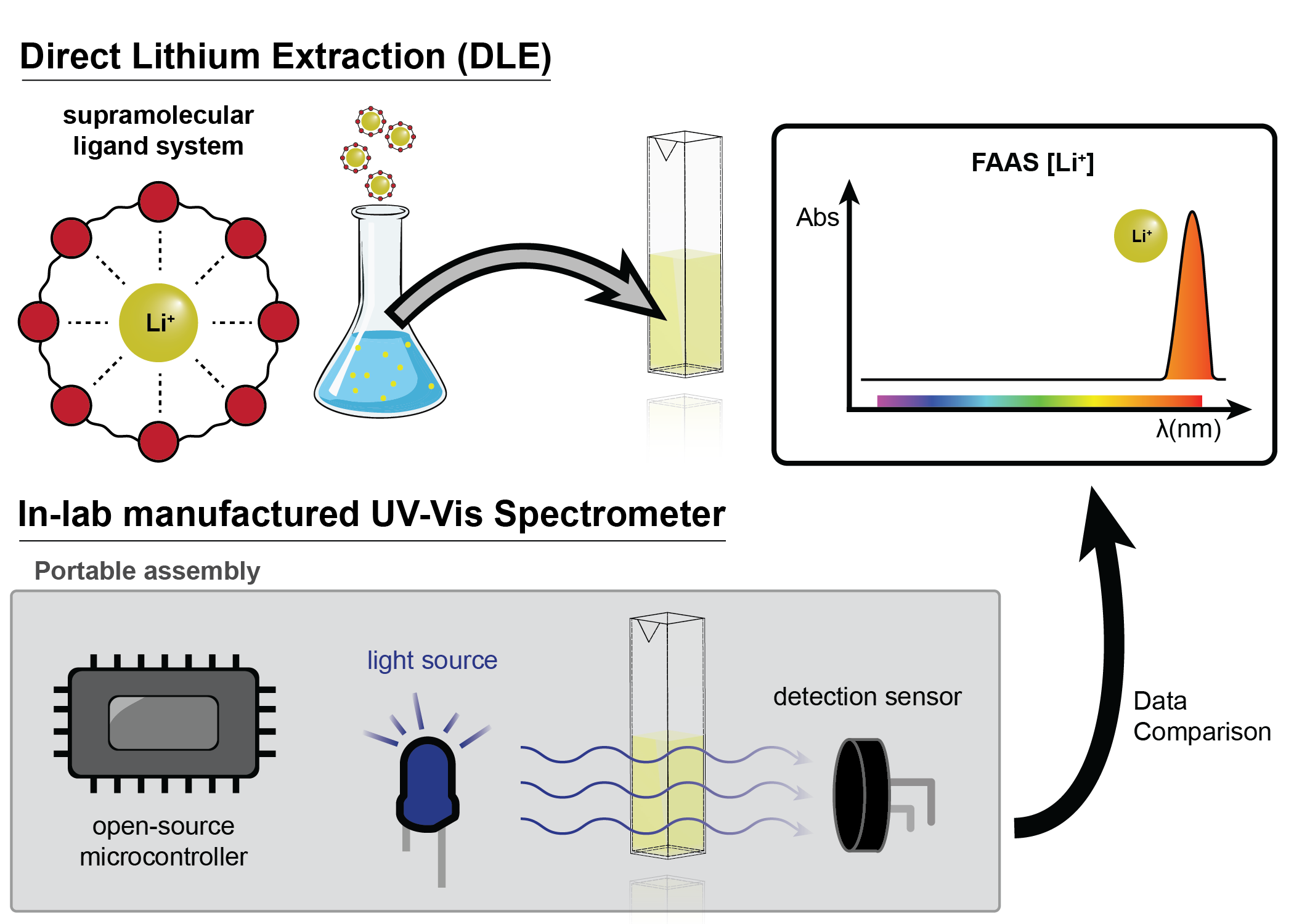
Curriculum Vitae
- B.S.: California State University, San Bernardino, 2018
- Ph.D.: University of California, Irvine, 2025
- Assistant Professor, San Diego State University, 2025-present
Research Interests

Dr. Uribe's research operates at the intersection of analytical chemistry, materials science, and instrumentation engineering, with a focus on developing sustainable technologies for lithium extraction and detection. One of his primary projects investigates novel methods for extracting lithium from geothermal brines, particularly from the Salton Sea in Southern California — a region of growing importance to renewable energy infrastructure. His work explores the use of both established and newly synthesized crown ethers as selective ligands for lithium capture. These ligands, due to their immiscibility in aqueous media, present opportunities for liquid-liquid phase separation or can be immobilized on solid supports for column-based separation. The effectiveness, selectivity, and affinity of these systems are evaluated using Flame Atomic Absorption Spectroscopy (FAAS) and visible spectroscopy. In parallel, lithium-selective sorbates, such as lithium manganese oxides (LMOs), are being investigated for their high-capacity and regenerative extraction potential. Nuclear Magnetic Resonance (NMR) spectroscopy plays a central role in this research, providing detailed insights into ligand structure and lithium-binding interactions.
A second major area of Dr. Uribe's research focuses on the design and development of benchtop and handheld UV-Vis spectrometers for field-based analyte detection. This project advances analytical chemistry by reimagining how scientific instruments are built and used. Drawing on his background in NMR hardware development, his lab designs, prototypes, and fabricates custom spectrometers using open-source microcontrollers, additive manufacturing (3D printing), and modular hardware systems that integrate analog sensors, digital controls, and optical elements. These platforms are designed to be cost-effective and portable, offering adaptable alternatives to traditional laboratory equipment. The lab's goal is to make reliable quantitative analysis more accessible, particularly in field settings or environments with limited infrastructure. Together, these research efforts support broader objectives in sustainable resource management, green chemistry, and innovation in environmental monitoring technologies.
Publications
- "Additive manufacturing for NMR probe builders,"
Uribe, J.L.; McAllister, A.V.; Martin, R.W.,
Progress in Nuclear Magnetic Resonance Spectroscopy 101563, 150-151 (2025). (doi: 10.1016/j.pnmrs.2025.101563.) - "A practical introduction to radio frequency electronics for Nuclear Magnetic Resonance (NMR) probe builders,"
Uribe, J.L.; Martin, R.W.,
Journal of Magnetic Resonance Open 19, 100153 (2024). (doi: 10.1016/j.jmro.2024.100153.) - "Automated test apparatus for bench-testing the magnetic field homogeneity of NMR transceiver coils,"
Uribe, J.L.; Jimenez, M.D. Kelz. J.I.; Liang, J.; Martin, R.W.,
Journal of Magnetic Resonance Open 18, 100142 (2024). (doi: 10.1016/j.jmro.2023.100142.) - "Implementation of specifications grading in an upper-division chemical biology lecture,"
Kelz, J.I.; Uribe, J.L.; et al.,
Biophysical Journal 122, 298a (2023). (link.) - "Active Learning Module for Protein Structure Analysis Using Novel Enzymes,"
Gemma, R.T.; Kelz, J.K.; Safizadeh, F.; Farahmand, V,; Crosby, M.G.; Uribe, J.L.; et al.,
The Biophysicist 3(1), 49-63 (2022). (doi: 10.35459/tbp.2021.000209.) - "Reimagining magnetic resonance instrumentation using open maker tools and hardware as protocol,"
Kelz, J. I.; Uribe, J. L.; Martin, R. W.,
Journal of Magnetic Resonance Open 6-7, 100011 (2021). (doi: 10.1016/j.jmro.2021.100011.)
